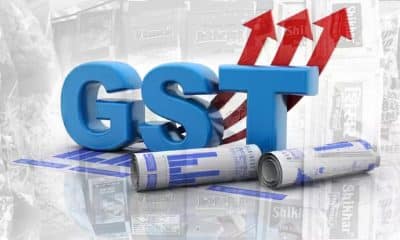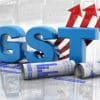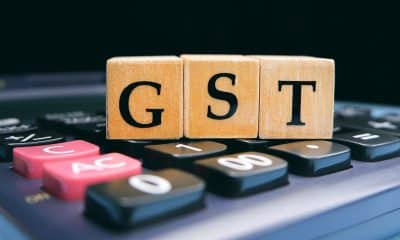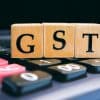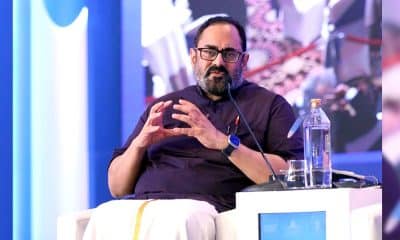Economy
45th meeting of GST Council underway, first meet since onset of COVID-19 pandemic
Finance Minister Nirmala Sitharama is chairing the 45th meeting of the GST Council, a first physical meet since the onset of the COVID-19 pandemic. The last meeting took place 20 months ago on December 18, 2019 and since then, the Council has been meeting through video conferencing.
The Council’s 45th meeting is being described as crucial as it would review tax rates of over four dozen items, like oncology medicine and coconut oil etc., and decide on extending tax concession to 11 COVID-19 drugs, like Remdesivir, Tocilizumab, and Heparin. Tax rate on Amphotercin B, Tocilizumab was cut to “Nil”, while Remdesivir and Heparin was reduced to 5% in June 2021. The Council will look into the proposal of reducing GST from 12% to 5% to the seven more drugs till December 31. 2021. These are Itolizumab, Posaconzole, Inlfliximab, Bamlanivimab and Etesevimab, Casirivimab and Imdevimab, 2-Deoxy-D-Glucose and Favipiravir.
The Council would be considering the proposal to make food delivery platforms like Swiggy and Zomato liable to pay the Goods and Services Tax on restaurant services supplied through them. Once approved, food delivery apps will have to collect and deposit GST with the government, in place of restaurants, for deliveries made by them. There would be no extra tax burden on the end consumer. Reports highlight that tax loss to exchequer due to alleged underreporting by food delivery aggregators is Rs 2,000 over the past two years.
It would also discuss the modalities of compensation payable to states from July 1, 2022. Taxing petrol and diesel under the single national GST is also on the cards. The Council, in the wake of the Kerala High Court order, will discuss taxing petrol and diesel under GST. This may require huge compromises by both central and state governments on the revenues they collect from taxing these products. In June, the Kerala High Court had asked the GST Council to decide on bringing petrol and diesel within the GST ambit.
Also Read: Big Tech giants keen to harness India’s farm data
A state-ministerial panel on capacity-based taxation on pan masala and composition scheme for brick kilns and stone crushers would come up in the discussions as well. The panel has recommended a special Composition Scheme in the brick kiln sector with effect from April 1, 2022, prescribing a GST rate of 6%, without ITC (input tax credit), similar to the rate in the services sector. It has suggested hiking GST rate on supply of bricks from 5% to 12% (with ITC), with effect from April 1. As such, the Council will review and also clarify regarding GST rates 32 goods and 29 services.





